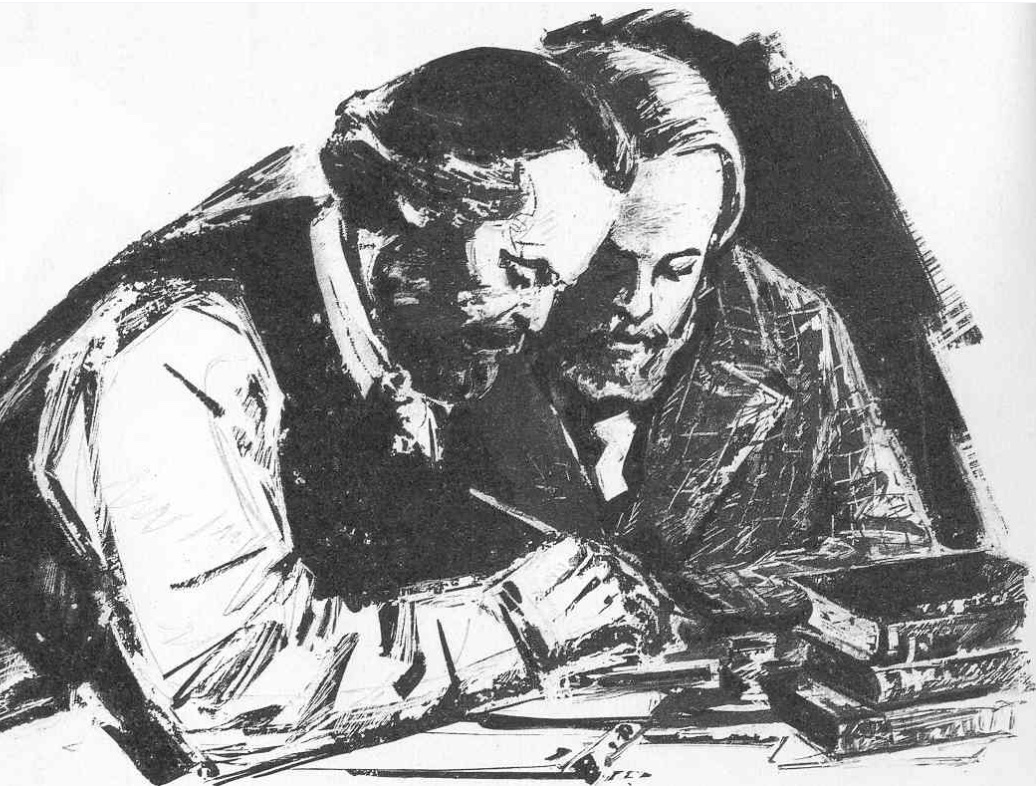As Bill Hunter shows here as capitalism developed it always brought more misery and only the class struggle brought improvements, as they faced oppression and exploitation every day.
As Marx says, “they are no more moved by the coming degeneration and final disappearance of the human race than they are disturbed by the prospect that the earth one day may fall into the sun.” In this sense, nothing has changed.
The Struggle for the Working Day
History shows that we are in a society whose mode of production is continually pushed toward destroying that class whose labour working on nature produces its wealth. Without taking this central tendency in capitalism and the strengths and weaknesses of working class organisations in the struggle against it, we cannot find our bearings today. The making of the British working class took many centuries. These days, there is the attempt to cover over its real history of struggles – including the struggle for Socialism – and its accomplishments,
The large landlords, financiers and merchants in the seventeenth and eighteenth centuries found their wealth could be expanded by the keeping of sheep and the selling of wool. Then, in the eighteenth century new methods of farming also increased their desire to grab larger tracts of land. They passed legislation to clear the peasants, or yeomen, and smallholders off their land. Not only did landlords take land which families had farmed for centuries as their own property – and in Scotland these families belonged to the same clan as the lord – the ‘legal’ robbers took the common land on which the common people had fed their animals and collected their firewood for centuries. Marx declared that from 1710 to 1760 in England, 335,000 acres of land were enclosed and from 1760 to 1843 no less than seven million acres were enclosed. Thus, was created profitable pasture for sheep and land for grain and hundreds of thousands of families were driven from the soil. Marx wrote in Volume 1 of Capital that, in the nineteenth century, “the mere memory of the connection of the land workers and communal property had faded away”.
The expansion of capitalist relationships of production into factory organisation was carried through with increasing misery, hardship and brutality for the common people. In these days when the history of the working class is being covered over and distorted by some historians, we do well to go back and read the chapter on ‘The Working Day’ in Capital Volume I. Marx described a century and a half of struggle to determine the working day and the transformation of workers from craftsmen working for themselves with their own means of production, into factory workers. His burning hatred of oppression and his devastating, sarcastic blows at capitalism and its statesmen and economists, the lively way he handles the mass of facts he gathered about the conditions of the working classes (many from official government reports), make this chapter gripping reading.
The early expansion of capitalist production, before the mass of the working class developed their organisations on any large or permanent scale, shows us very clearly that because of the nature of capitalist ownership and capital’s ruthless drive for profit it has an inherent tendency to drive the use of labour power to the limits of human endurance and beyond, both in relation to the workers’ hours of work and in the intensification of their labour.
Capitalism extracts surplus value from labour, and in its history, it has done that, either by lengthening of the working day, which increases the absolute surplus value, or increasing the social productivity of workers and thus increasing relative surplus value.
Capitalism ferociously worsened the conditions of labour as it developed factory production, in search of quick profit. It destroyed generations of men and women by lengthening the working day, not only for men and women, but also for children from ages as low as five and six.
Marx, in the first volume of Capital quotes a speech in the House of Commons given on April 27, 1863, in which an MP declared:
“The cotton trade has existed for ninety years…. It has existed for three generations of the English race, and I believe I may safely say that during that period it has destroyed nine generations of factory operatives.”
Then Marx draws a conclusion that finds an echo today: “The capitalists have such good reason for denying the suffering of legions of workers who surround them, that in practice they are no more moved by the coming degeneration and final disappearance of the human race than they are disturbed by the prospect that the earth one day may fall into the sun.”
When there is a boom on the stock exchange, everyone who takes part in the swindle knows that sooner or later the crash will come, but each man hopes that the disaster will involve his neighbours, after he himself has taken safe shelter with a goodly share of the loot. “After me, the deluge!” is the watchword of every capitalist and of every capitalist nation. Capital, therefore, is reckless as regards illness or premature death of workers unless forced to pay heed to these matters, forced by social compulsion
Marx in his survey of the working day in the 18th Century and the beginning of the 19th concluded that the struggle of capital and labour over the working day, was constant and continuous. “The establishment of a normal working day,” he wrote, ” is the outcome of centuries of struggle between capitalist and worker.” The general working week of the worker at the beginning of this struggle in the eighteenth century was four days a week. By economic and legislative means, the old life of masses of men women and children was destroyed.


